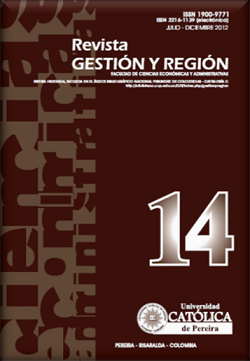Democratización de la Educación Superior: Una estrategia para el desarrollo socioeconómico
Keywords:
Higher education, democratization, public policies, human talent, economic developmentAbstract
This document focuses on the theoretical-conceptual analysis of higher education democratization and its potential scope in terms of public policy for the socio-economic development of a country. The hypothesis guide, considers the democratization of education as a social transformation phenomenon, that from an egalitarian and equitable perspective, enables the reproduction of individual benefits, the expansion of positive externalities, the construction of knowledge-based societies, and the strengthening of productive structures; all of this through the extension of personal freedoms and human capital formation. It is propose, an understanding of the phenomenon as an evolutionary process, which requires specific long-term policies for the harmonization of productive dynamics with social welfare.
References
Becker, G. (1964). Human Capital. A Theoretical and Empirical Analysis, with Special Reference to Education. 3a ed. New York: Columbia University Press for NBER.
Bertocchi, G. & Spagat, M. (2004). The evolution of modern educational systems. Technical vs. general education, distributional conflict, and growth. Journal of Development Economics, 73, 559-582.
Burbano, G. (1999), La Educación Superior En La Segunda Mitad Del Siglo Xx. Los alcances del cambio en América Latina y el Caribe. Revista Iberoamericana de Educación, 21, 15-23.
CEPAL (2010). Panorama Social de América Latina, 2010. Chile: Publicación de las Naciones Unidas
CONPES (2008). Política Nacional de Competitividad y Productividad. Recuperado de https://www.dnp.gov.co/Portals/0/archivos/documentos/Subdireccion/Conpes/3527.pdf
CONPES (2009). Política Nacional de Ciencia, Tecnología e Innovación. Recuperado de https://www.dnp.gov.co/Portals/0/archivos/documentos/Subdireccion/Conpes/3582.pdf.
CONPES (2010). Lineamientos de política para el fortalecimiento del sistema de formación de capital humano SFCH. Recuperado de https://www.dnp.gov.co/LinkClick.aspx?fileticket=IQas7idIt_k%3d&tabid=1063.
Craig, J. (1981). The expansion of Education. Review of Research in Education, 9, 151-231.
DEPARTAMENTO NACIONAL DE PLANEACIÓN (2011). Plan Nacional de Desarrollo 2010-2014. Recuperado de https://www.dnp.gov.co/PND/PND20102014.aspx.
Fisher, I. (1906). The Nature of Capital and Income. New York: MacMilliam & Co.
Hopenhayn, M. (2011), Educación para la cohesión y la movilidad social. En A. Bárcena Y N. Serra (Ed.), Educación, desarrollo y ciudadanía en América Latina. Propuestas para el debate (pp.119-158). Chile: CEPAL.
Kamat, A.R. (1982). Education and Social Change: A Conceptual Framework. Economic and Political Weekly. 17(31), 1237-1244.
Luhmann, N. (1996). Teoría de la Sociedad y Pedagogía. Barcelona: Paidós.
Martínez, M. (2004). La Democratización de la Enseñanza. Eúphoros, 4, 259 – 278.
Merle, P. (2000). Le concept de democratization de l'instution scolaire: une typologie et sa mise à l'éprueve. Population. 55(1).
Mincer, J. (1958). Investment in Human Capital and Personal Income Distribution. Journal of Political Economy, 66, 281-302.
MINISTERIO DE EDUCACIÓN NACIONAL. (2008). Revolución educativa: plan sectorial 2006-2010. (8). Recuperado de: http://www.mineducacion.gov.co/1621/articles-152025_recurso_1_pdf.pdf
Mora, J. (2004). Sobre-educación en Cali (Colombia), ¿Desequilibrio temporal o permanente?: Algunas ideas, 2000-2003. Revista de Economía y Administración, 1(1), 115-144.
Mora, J. (2007). Sobre-educación en el mercado laboral colombiano. Revista de Economía Institucional. 10(19), 293-309.
Moreno, J. C. Y, Ruiz, P. (2009). La educación superior y el desarrollo económico en América Latina. Serie Estudios y Perspectivas CEPAL, 106.
ONU (1948). Declaración Universal de los Derechos Humanos. Recuperado de: http://www.un.org/es/documents/udhr/index_print.shtml.
Prado, A. (2011). El desarrollo en América Latina después de la crisis financiera de 2008. En A. BÁRCENA y N. SERRA (Ed.), Educación, desarrollo y ciudadanía en América Latina. Propuestas para el debate (pp.17-37). Chile: CEPAL.
Parra, R. (1977). La expansión de la escolaridad en Colombia. CEDE – Universidad de los Andes. (37).
Prost, A. (1986). L'enseignement s'est-il démocratisé ? les élèves des lycéss et collèges de l'agglomération d'Orléans de 1945 à 1980. Paris: Presses Universitaires de France.
Reimers, F. (2006). Education and social progress. En V. Bulmer-Thomas, J. Coatsworth, & R. Cortes. (Eds.). The Cambridge economic history of Latin America (pp.427-479). Cambridge: Cambridge University Press.
Smith, A. (1776), An Inquiry into the Nature and Causes of the Wealth of Nations. Recuperado de: http://www.econlib.org/library/Smith/smWNCover.html.
Schwartzman, S. (2002). Higher Education and the Demands of the New Economy in Latin America. Background paper for the World Bank's report on Closing the Gap in Education and Technology, Latin American and Caribbean Department.
Sen, A. (2000). Desarrollo y Libertad. Buenos Aires: Planeta.
Sotelo, I. (1995). Educación y Democracia. En P. MANZANO (Ed.) Volver a Pensar la Educación Vol.1, (pp. 34-59). Madrid: Fundación Paideia.
Schultz, T. (1960). Capital Formation by Education. Journal Political Economy. 68(6), 571-583.
Stone, L. (1969). Literacy and education in England, 1640-1900. Past and Present Oxford Journals, 42(1), 69-139.
Stone, R. (1976). Demographic variables in the economics of education. En A. COALE. (Ed.), Economic factors in population growth. New York: Wiley.
Trow, M. (1974), Problems in the Transition from Elite to Mass Higher Education. En Polices for Higher Education (pp 55-101). París: OECD.
Trow, M. (2005). Reflections on the Transition from Elite to Mass to Universal Acc

